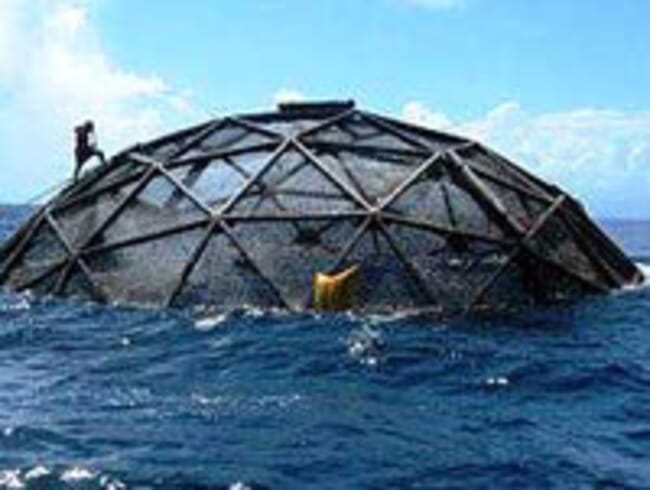The study,
by Changing Tastes and Datassential, looked at the attitudes of both consumers and foodservice operators, the business executives who make purchasing, menu and merchandising decisions about what to offer consumers.

© Open Blue
“In a recent prior study, we found that many Americans are interested in reducing the amount of meat they consume and instead eat more fish and seafood. But they have concerns about how fish and seafood are produced,” said Arlin Wasserman, founder and partner at Changing Tastes. “This new study dives deeper and finds that both consumers’ and operators’ top concerns are about water pollution from fish farming and the impact on water quality as well as the use of antibiotics and pesticides.”
The study finds that these concerns are pronounced whether production occurs on land or near the shore, although concern about antibiotic use is significantly higher for land-based aquaculture. Overall, aquaculture operations located near the shore are seen as the least preferable for the environment.
“The conventional wisdom is that Americans prefer wild fish and seafood and on the surface that’s true,” said Wasserman. “But when we take a closer look in this study, we find that Americans don’t yet have an established preference, and some currently prefer farmed fish and seafood over wild-caught. This is even more true for less popular and newer varieties.”
The study also finds that both consumers and operators underestimate the role of aquaculture in producing fish and seafood today. About half of consumers and operators also believe that mariculture — farming fish out in the open ocean — produces better quality products, is cleaner and free of antibiotics, pesticides and other chemicals, is better for the environment, has less impact on wildlife and is more humane compared to other aquaculture methods. A quarter of consumers and operators believe mariculture is better for the environment than wild capture fishing.
“Environmental consciousness is a shared value today, particularly among the younger generations, Millennials and Gen Z. Farming in the deep ocean is considered the best aquaculture practice for the environment after catching fish in the wild. So, there is ample room for the industry to activate consumers by educating them about its benefits,” said Marie Molde of Datassential.

